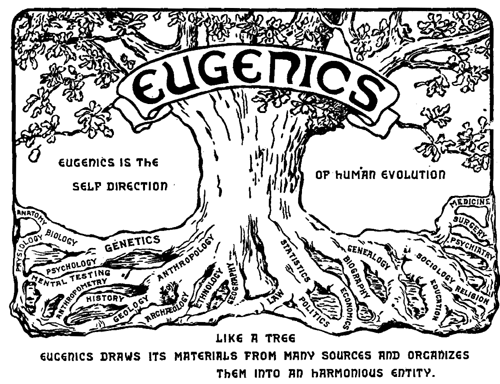 Culture & Ethics
Culture & Ethics
 Evolution
Evolution
What Should John Scopes Have Taught His Students About Human Evolution?

Jerry Coyne has responded to my post and David Klinghoffer’s post about his bizarre embrace of the grave of John Scopes, the teacher at the center of the 1925 Scopes "Monkey" trial. David and I pointed out that Scopes broke Tennessee law by teaching human evolution from a racist eugenic textbook, and that Coyne’s embrace of Scopes’s legacy was troubling.
Why would Coyne embrace Scopes, and declare that he "should have sought [Scopes] out to shake his hand"?
Shake his hand for what?
Scopes’s legacy consists entirely of inviting prosecution by proudly teaching human evolution from a eugenic racist textbook. Coyne offers no explanation for his embrace of Scopes’s legacy. He instead assures us that his feelings weren’t hurt by our posts, and castigates David and me for lying "in service of Jesus" (I’m Catholic, and David is an Orthodox Jew). Coyne insists that "an apology is in order" — our apology to him — yet he believes an apology is "about as likely as Egnor confessing that he’s finally seen the truth of evolution." Ironically, telling the truth about evolution — telling exactly what Scopes taught to his students — is precisely what David and I did. Coyne replies to our simple observation by dissembling, changing the subject, and pouting.
Coyne’s post is a shambles, and not worth a detailed reply. But his evasion does raise another interesting question. Given that Coyne objects to racism and eugenics, as he affirmed in his reply, what should Scopes have taught his students about human evolution?
Eugenic racism in 1925 was consensus science in the field of human evolution. By 1928 there were 376 university-level courses on eugenics, and there was widespread support from scientists and other academics at leading universities — Harvard, Princeton, Yale, Stanford, and Johns Hopkins, to name a few — as well as enthusiastic support from media and government. Eugenic science was funded lavishly by the Carnegie Institution, the Rockefeller Foundation, the Harriman Railroad foundation, and the wealthy businessman J.H. Kellogg. Many national and international conferences on eugenics and human evolution were hosted at leading research institutions, including the American Museum of Natural History, and eugenic science gained the imprimatur of leading scientific organizations, including the National Academy of Sciences, the American Medical Association, and the National Research Council. Wealthy donors created the Eugenic Records Office on Long Island, later to become the Cold Spring Harbor Laboratory. By the 1930s, thirty-one states in the U.S. would pass compulsory sterilization laws based on mainstream eugenic science and human evolution, and eugenics would receive the explicit endorsement of the Supreme Court in 1926. By the end of the first half of the 20th century, sixty thousand Americans had been sterilized involuntarily on the basis of consensus eugenic science.
So what should Scopes have done in 1925? Racism and eugenics were the hallmarks of the theory of human evolution in the early 20th century, representing a clear consensus of evolutionary biologists as well as other scientists and leaders in higher education and government. There were a few dissenters, but such skeptics were disdained in mainstream scientific circles.
Here’s my question for Coyne: Should Scopes have taught his students only the scientific consensus on eugenics and human evolution in 1925, or should he have taught the controversy?
Image: Logo of the Second International Congress of Eugenics, 1921/Wikipedia.
